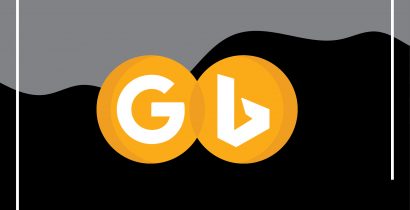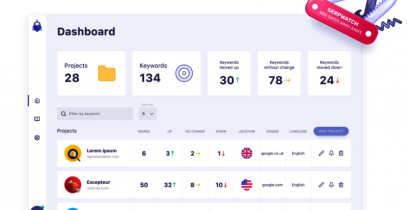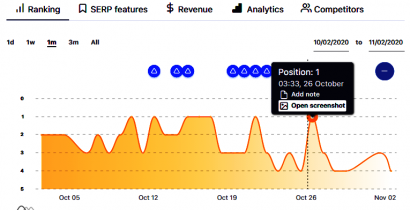
Looking Beyond Google: Best Alternative Search Engines in 2024

It may seem strange, but Google isn’t the only search engine. Believe it or not, dozens of other options are out there, gaining a portion of search engine market share.
Yet, not all alternative search engines are the same, and some provide better services and more accurate results than others. That’s why we dived deep into the topic and analyzed every aspect of those search engines. Here’s what we discovered.
Why You Might Want to Consider Giving up on Google Search
To kick things off, it’s important to give Google some praise. As part of the ALPHABET conglomerate, the search engine certainly has one of the most advanced search algorithms, and by far, the biggest market share. Its web crawlers are highly efficient, and most search results are relevant. But there are some pretty big downsides. The following covers some reasons for considering search engines other than Google.
Tracking and Collecting Personal Data
The protection of personal data has become one of the highest concerns of the decade. Numerous companies have been found to actively track the way you use the web, their apps, your computer, and your phone. Generally, this data is used to facilitate better ad placement, yet privacy-conscious people are in no way happy with the amount of information being collected.
By default, Google collects a wide array of information on its users, and turning this process off completely is quite difficult. When you create a Google account, by default, your search history is logged and analyzed, alongside lots of other data.
To put things better into perspective, Google, unlike certain other search engines, shares the types of data they collect. This can include but is not limited to, your search history, videos you’ve watched, any ads you saw or clicked on, the websites you visited, and the devices you’ve used for accessing Google’s services.
If you have a Google account or use other services provided by Google, there are other types of data that are being tracked, stored, and analyzed: name, gender, birthday, phone number, emails you receive, emails you send, photos, videos, contacts, events you join, all the documents you create on Google Drive, and more. Additionally, cookies can also be tracked, thus helping with the creation of detailed user profiles of internet users. Just the data tracking is enough to convince some to look into alternative search engines.
Since it has faced quite a bit of backlash over its data collection, Google has attempted to explain why and how this data helps it offer better services to its customers. For instance, by tracking location history, Maps works faster. Tracking the search history helps the search engine quickly autocomplete your searches. YouTube also takes these factors into consideration to recommend new videos.
In hindsight, you aren’t personally affected by this tracking, but many people prefer not to have this amount of personal data stored and analyzed. But consider this: the goal of SERPs is to show you what you really want to see. Therefore, you get results delivered based on your personal user profile, which may cause you to miss out on other searches. The argument for considering search engines other than Google here derives from the fact that you can’t turn off the data collection, although you can opt out of a part of it.
In fact, because of tracking-related controversies, the last couple of years have brought along the appearance of numerous privacy-conscious search engines. We will talk about their main benefits later on, yet some of these other search engines include DuckDuckGo, Gibiru, SwissCows, Qwant, and many more. Even so, studies show that Google still has 92% of the market share.
There Are Specialized Search Engines for Specialized Searches
Generally, Google fails to answer complex questions, since it doesn’t actively compute your search queries. For instance, a question pertaining to arithmetic will be better suited for a search engine like Wolfram Alpha.
Additionally, if you take an interest in the Deep Web, Google is basically pointless, since its crawlers do not index deep pages. There are, however, options that do. We’ll talk about them shortly.
Even though Google owns YouTube, for some reason their video web search results aren’t the most satisfactory. In fact, other search engines tend to do a much better job in this regard.
What Are the Primary Types of Search Engines?
Back in the day, internet users didn’t have Google or any other search engine we know today. Instead, directories of websites curated by people were used to retrieve information. Tools like Archie and Gopher in the early 1990s started the revolution to be where we are today.
Essentially, the three main types are crawler-based search engines, human-powered directories, and hybrid search engines. In 2024, most alternative search engines will fall into the first category because the second and third types are mostly extinct.
For instance, human-powered systems like DMOZ or Yahoo Directory are no longer active because automation and artificial intelligence have pushed the industry forward. In other words, no one has time for manual filtering and indexing. Instead, crawler-based search engines with their bots and spiders scan massive volumes of data and deliver accurate results within milliseconds.
How Many Search Engines Are There?
As we said, search engines come in various forms. Over the years, many companies and organizations have developed proprietary search engines, but most of those projects haven’t become mainstream. Yet, several are fighting for their place under the sun.
Plus, we haven’t mentioned metasearch engines. In short, what metasearch engines do is combine results from several search engines other than Google and display everything in one place.
But when it comes to more traditional options, the market offers dozens of options. Nowadays, at least 17 search engines are operational, fetching data and responding to queries using various algorithms and systems. In addition, of course, new search engines pop up from time to time to challenge Google, Bing, and other internet juggernauts.
What Are the Most Popular Search Engines?
Speaking of big names, it’s clear that some search engines are more popular than others. As expected, Google tops the list, thanks to its comprehensive range of services and advanced algorithms. Owned by Alphabet, Google joined the online world back in 1998, after Sergey Brin and Larry Page launched their project.
After its inception, Google moved into an office in Mountain View, California, and eventually acquired several companies, including YouTube in October 2006. However, we’re here to talk about alternative search engines, so we should mention a couple of names.
For instance, the famous Bing vs. Google rivalry made a mark in the search engine industry last decade. Namely, Bing is the second-ranked search engine with 5.56% of the global search market. Likewise, we should mention Yahoo, which accounts for 2.71% of the global search market in 2021. Other popular search engines are Yandex and Baidu.
Alternative Search Engines Worth Your Consideration
When it comes down to comparing search engines to one another, there are several factors worth taking into consideration. These include privacy, ads, search capabilities, extra tools, and the user interface. For the list of search engines below, we have taken each of these factors into account. Without further ado, here are the best alternative search engines for 2024.
1. Bing
Microsoft’s search engine, Bing, has a well-consolidated presence online, granted that it is the world’s second-biggest search engine. Unlike Google, Bing strives to focus less on text and more on images, hence providing users with a visually enjoyable experience. In fact, many people swear by Bing’s capabilities for video search, which are apparently much better than Google’s, since numerous features (like selecting the quality/size of the video, etc.) are available. Additionally, Bing also has several tools that are targeted to programmers. Needless to say, it’s commonly considered one of the best alternatives to Google.
For a while, search results made with Bing were provided by Yahoo!, back when Yahoo Search was a direct competitor to Google Search. Since then, things have changed, as Bing has created its very own SERP algorithm and web crawler.
In terms of its features, Bing offers several of the general tools you’d expect from most free search engines, alongside some special ones. For instance, in terms of its interface features, Bing changes the background image on a daily basis, thus constantly serving users fresh and beautiful images. The Bing search also comes with several cool media features, including the video thumbnail view (videos being played upon hovering over them with your cursor), or continuous image search (just like Google).
The search engine also grants users access to instant answers for several types of search queries. These include sports results, finance indicators, currency conversion rates, unit conversion, mathematical computations, general calculations, dictionary results, flight tracking, health information, auto-translation, and more. In fact, most of the options on our search engines list offer similar tools.
At this time, Bing serves as the mainframe for Yahoo Search, thanks to a deal made between Yahoo and Microsoft. As such, most searches carried out via this platform will be similar to those queried directly via Bing. Following the deal, Yahoo did state that it will still introduce different perks meant to help the search experience seem different when compared to the one offered by Bing. Tracking still happens, however. For some, this might be a certain downside that leads to looking for search engines besides Google and Bing.
In terms of advertisements, purchasing ads is done directly from Bing for individual users. On the other hand, big advertisers are given access to Yahoo’s account representatives, yet the ads are still introduced into Bing’s back-end.
2. DuckDuckGo
DuckDuckGo is by far one of the best internet search engines for everyone who is interested in protecting their personal data online and making sure that their search results aren’t being tracked.
The company’s mission is to set a new standard of trust online by helping empower individuals to thoroughly control their personal information while browsing the World Wide Web. Since personal data is essential for targeting ads (thus increasing profitability for search engines), you may ask yourself how this appealing Google alternative earns money, granted that their service is free. Well, advertisements are still displayed, but under the sponsored links technique. This means that the search engine doesn’t track your interests to determine what types of ads to show, but rather only shows ads that are related to the topic you’re searching for. If you’re against ads, you don’t even need to use an ad blocker, as there’s a setting you can use to turn off advertisements. Because of this, DuckDuckGo is included among the types of search engines that are partially or fully anonymous.
It’s important to keep in mind that search engine anonymity comes with a flaw. The algorithm doesn’t know who you are or what your interests are. Because of this, results aren’t directly targeted to your main interests and may not appear as relevant as Google’s.
On the other hand, browsing through neutral results is a good exercise, as it helps expand your knowledge of a particular topic. Despite the non-targeted results, if you have a bit of skill when it comes down to browsing the internet, you’ll surely find exactly what you are looking for with each search.
DuckDuckGo, as well as a few other search engines, also attempt to further simplify search results by using metadata. For instance, you can target the results yourself by selecting search criteria, or picking the language/country.
While it does miss some of the features associated with Google, DuckDuckGo also offers some innovative tools. One of these is !Bangs, a service that allows you to search for specific pieces of information within a website, thus making browsing even faster.
DuckDuckGo allows several customization options, thus you can tailor the experience to your likes. DuckDuckGo, like Google and Bing, provides instant search. It surely isn’t as refined when compared to the two competitors, yet it offers some cool features. For instance, you can use the search bar to generate long-string passwords, find rhyming words, open up a stopwatch, or pull information directly from its source.
The DuckDuckGo search engine is always accessible via URL, but it also offers an app for Android and iOS devices. A browser extension is also available if you decide to make the switch.
So, in a DuckDuckGo vs Google competition, each engine has benefits and flaws: while Google offers better search results, DuckDuckGo protects personal data. However, you should also know that DuckDuckGo is the default search engine for the Tor Browser which is the most popular secure browser alongside Brave. This means that you can use it to look for links buried inside the deep web, thus granting users access to a much grander search result potential.
3. Qwant
So far, we have outlined the most important choices, but what other search engines are there? And are they worth it? We definitely think so. In many ways, Qwant and DuckDuckGo are quite similar. With this in mind, Qwant is an increasingly popular search engine that focuses on providing users with privacy assurance. As such, the company promises to never track web behavior, searches, or other forms of personal data for the purpose of targeting ads. This ranks it well it among other private search engines.
The engine’s user interface is certainly pleasing, and search results are well organized under three main categories: web, social, and news. This makes browsing a more pleasant and efficient experience.
Speaking of the user interface, this search engine also offers a quick view of news stories or other trending topics, thus making it dynamic and pleasing to use. Features like this make it one of the more viable alternatives to Google products.
Qwant offers a cool tool named Qwick Search Shortcuts, thus allowing users to search for items on specific websites, such as Amazon. So far, hundreds of websites are supported, and others are constantly being added.
Qwant is also quite popular for its music search engine, which can be used to either look for a particular artist, album, or song or to search for entirely new music based on genres and other preferences. More so, the dedicated music section employs the use of artificial intelligence to further help with discovering new music or finding the lyrics to your favorite songs. So, in this regard, it’s a feature-packed non-Google search engine.
Just like DuckDuckGo, search queries aren’t personalized, so they don’t depict your personal interests. This is also good news since it provides more sources of information.
4. SwissCows
SwissCows has been on the market for quite a while—yet it was initially branded as Hulbee. It represents a more than capable search engine, which can definitely yield good SERPs for those that get used to it. At this time, it occupies one of the higher spots on the list of the top 50 search engines.
There are two main factors contributing to its ascension. First, the search engine is marketed as being child-appropriate, thanks to its multitude of easily managed parental controls. It comes along with a capable filter meant to protect children from seeing violent or pornographic content. Due to the way the search engine is built, this filter cannot be overridden.
Apart from this aspect, SwissCows is also one of the privacy-conscious alternative search engines. The company has often stated that it does not track users, so there’s no collection of personal data, search history, online identifiers, or IP addresses. It is also worth pointing out that the engine’s servers operate from Switzerland, which is known for its protective data privacy legislation. Since no data is tracked, this means that, like DuckDuckGo, its ads are based on the things you search for, rather than your personal location or interests.
In terms of search engine performance, SwissCows utilizes the Bing mainframe when offering intuitive search engine results. This, however, is not a flaw, granted that Bing is known for its strong algorithms, and after all, it is one of the best alternatives to Google.
Conclusion
Based on everything that has been outlined so far, clearly, Google isn’t your only search engine choice. Our recommendation is to check out these suggestions, even research other options, and determine what works best for your current needs.
Let’s not forget that Google’s results remain the best by popular consensus which is why there are stunning 5.6 billion Google searches per day. However, the tools and privacy-oriented approach of the numerous alternative search engines available on the market may make one worth switching too.
Frequently Asked Questions
What Are Alternative Search Engines?
The term alternative has many synonyms, including unconventional and secondary. In essence, the idea is that one thing replaces another, and the substitute version is what we call an alternative.
The same logic applies to the search engine world, a diversified market with multiple fallback options if you don’t want to use Google. After all, SEO statistics reveal that Google covers 86.6% of the market, sitting firmly at the top of the search engines list.
Therefore, we could say that anything that’s not Google is an alternative engine because most internet users think of Google when someone mentions search engines. Over the years, this tech giant has built an empire based on data and innovation, offering lightning-fast answers to queries. Yet, Google’s notorious data-tracking practices have called for alternative options with different features.
popular search engines are Yandex and Baidu.
What Is the Best Search Engine?
Google’s supremacy is no coincidence, and this search engine typically wins every competition for the best search engines. In essence, Google’s advantages include superior speed and a massive number of indexed websites. Thus, users receive relevant answers to their queries quickly and accurately.
On top of that, Google continuously updates its databases and improves algorithms. That’s why it’s essential to use tools like SerpWatch and keep an eye on your website’s rankings at all times. However, Google is far from a private search engine, even if you browse in incognito mode.
More precisely, Google collects lots of data by tracking visitors and their search history. Personal profiling provides Google with information on billions of users, which bothers many. In other words, Google’s data collecting policies are not everyone’s cup of tea because many users want to protect their personal data. In a way, that’s the reason alternative options are on the menu.
What Other Search Engines Are There
We’ve already mentioned some alternatives to Google, but there are more names on the list. Of course, we’ll focus only on legitimate and safe search engines. In most cases, those who don’t like Google look for alternatives to keep their search history away from prying eyes.
Since the latest SSL statistics show that 95% of websites use HTTPS, an SSL certificate will protect your private information. Of course, using a safe search engine is always a good idea. For instance, some of the most privacy-oriented search engines are Startpage, DuckDuckGo, Qwant, and Ecosia.
Likewise, many users turn to MetaGer, Disconnect Search, or Gibiru. It all depends on your needs and preferences, given that these search engines offer specific features and possibilities. However, most alternative options are much slower than Google, and they typically display a smaller number of answers to queries.
Who Owns Bing?
Microsoft is Bing’s owner and creator. Launched in 2009, Bing has become one of Google’s biggest competitors. Bing and Yahoo partnered up in July 2009, but Microsoft’s search engine never caught up with Google. Nowadays, Bing is the second largest search engine in the US, but it only holds a few percent of the search engine market.
Who Owns DuckDuckGo?
Created by Gabriel Weinberg, DuckDuckGo (also abbreviated as DDG) is a Pennsylvania-based internet privacy company. Despite the rumors, DuckDuckGo is not owned by Google, China, or any other entity. Admittedly, it has an affiliate agreement with Microsoft to distribute Bing Ads. Even so, DuckDuckGo is all about offering untracked searches without collecting user data.
Are There Any Search Engines That Don’t Censor?
In recent years, the tech community has continuously debated anti-censorship policies, especially the aspects related to social media. However, despite several scandals and Senate hearings, not much has changed. Moreover, it seems that online censorship significantly increased after the outbreak of COVID-19 because of false news.
As a result, many users look for information on search engines with minimal filtering and data tailoring. In other words, they use alternative search engines without censorship. Luckily, there are several options on the market, starting with the abovementioned DuckDuckGo.
DuckDuckGo is the most successful privacy-focused search engine, offering a top-drawer user experience with zero data tracking. Qwant and Startpage share the same philosophy, and these search engines also help users escape the filter bubble and see beyond personalized results. Likewise, independent search engines like Mojeek, Ecosia, or Gibiru don’t enforce trackers.
What Is the Safest Search Engine in 2022?
These days, the overall online safety for an ordinary internet user is much better than a decade ago. Even so, one can never be too careful, and using a reliable and legitimate search engine is where it all starts. In other words, the less information search engines gather about users, the better.
For example, Google collects IP addresses, browser cookies, and other search queries and online behavior details. However, the best alternative search engines deploy opposite policies, providing answers to questions without compromising your online safety and real-life identity.
We’ve already explained how DuckDuckGo boasts complete transparency and privacy protection. Also, Startpage claims to be the best search engine that protects your privacy because it doesn’t track or share your personal information. Plus, it uses proxy servers to route the connection, protecting your location and the IP address.
What Is the Best Shopping Search Engine in 2024?
Ecommerce is another highly competitive industry, with millions of shopping websites and platforms. Nowadays, almost every company sells its products or services online, so it’s not surprising to see the rise of price comparison websites. Together with traditional search engines, these tools facilitate online shopping and help consumers find the best deals.
Therefore, if you need an alternative to Google Search, Google Shopping is a specialized search engine focusing on online retail and ecommerce in general. In essence, this service allows users to view and compare products from various sellers.
Formerly known as Google Product Search, Google Shopping typically ranks as the best search engine for shopping. But, of course, it’s not the only option out there, and many users opt for Bing Shopping, Wanelo, or Shopzilla.






There are currently no comments.
Be the first!))